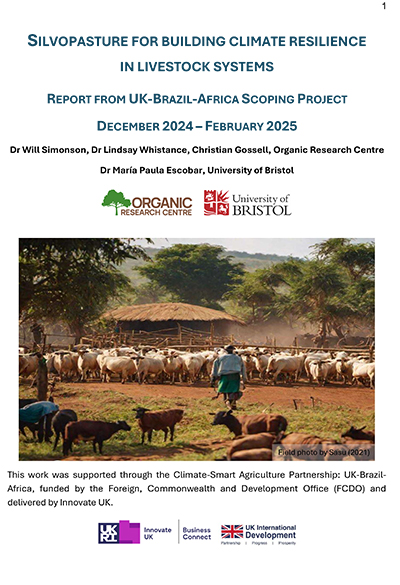Our scoping project on silvopasture for building climate resilience came to an end in February. International experience was shared among a network of over 50 stakeholders, including one-to-one conversations and an online workshop, supported by background research.

The final report is now available here. It synthesises our findings on how silvopasture provides climate change adaptation benefits, the challenges facing the livestock sector in Ghana and Nigeria as a result of climate change, and the potential of, but also barriers to, silvopasture being implemented at scale as a climate-smart solution in Africa. Opportunities for international transfer of knowledge, technologies and practices are discussed, with six proposals put forward on the topics of livestock health, tree fodder, decision support for tree species selection, infrastructure for tree protection and irrigation, reduction of enteric methane emissions, and community-based solutions.
There was a strong emphasis throughout our discussions on the need for conflict resolution initiatives, due to the breakdown of traditionally cooperative relationships between sedentary farmers and transhumant herders. The challenge for technology transfer and the contribution of the private sector is to work with an extensive pastoralism model, support commercial production where that is appropriate and sustainable, and support local initiatives working on solutions that can meet the intersecting challenges of climate change and social conflicts.
See all reports published by the Innovate UK Climate-Smart Agriculture Partnership: UK-Brazil-Africa: New Climate-Smart Agriculture Partnership Scoping Project reports published
